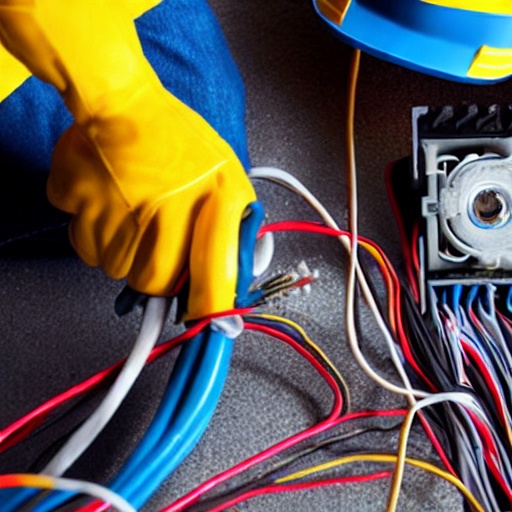
How to Safely Install a New Circuit Breaker: A Step-by-Step Guide
Installing a new circuit breaker is an essential task that should be approached with caution and careful planning. It's not just about ensuring the lights turn on; it's about making sure your home’s electrical system is safe and sound. Here’s a comprehensive, yet straightforward guide to help you execute this project safely. First things first! Before you even think of touching anything, make sure all power leading to the service panel is turned off (you really don't want any surprises here). You can do this by switching off the main breaker in your electrical box. It's crucial to confirm there's no power flowing; use a voltage tester for verification. Now, once the area’s power-free, open up your service panel (typically located in basements or backrooms). Depending on how old your setup is, you might see screws or fasteners keeping it shut. Use the appropriate tools - usually screwdrivers - to open these up. With the panel open, take a moment! Look at how everything is arranged. Understanding where each wire goes and what each breaker does can save tons of trouble later on. If it helps, snap a photo for
read more
Advanced Wiring Practices & Installation Procedures
Advanced Wiring Practices & Installation Procedures is an essential part of any electrical work. It involves the installation, maintenance and repair of all wiring systems as well as related equipment. This includes in-home wiring for residential dwellings and commercial buildings, industrial-grade wiring used in factories and businesses, and even specialized wiring used in medical facilities and laboratories. However, proper wiring practices must be followed to ensure safety and promote longevity of these systems. This means understanding the different types of wires available (e.g., insulated vs uninsulated), their uses, the required tools and supplies needed (e.g., wire cutters, strippers, clamps) and how to install them correctly. Additionally, it also requires familiarity with codes, regulations and standards applicable to particular projects or installations (e.g., NEC). Moreover, one must know how to troubleshoot problems that may arise during a project or after it has been completed; this includes being able to identify faulty parts or components quickly so they can be replaced promptly without disrupting operations or compromising safety marges. Furthermore, basic knowledge about electrical theory is necessary for successful completion of wiring jobs since it provides a better understanding of why certain steps are taken
read more
Different Types of Cables, Connectors and Fixtures
Cables, connectors and fixtures are an important part of any electrical system. They allow us to connect devices to a power source and enable the efficient transfer of energy. There are many different types of cables, connectors and fixtures available for different applications. Firstly, let's look at cables. Cables range from low voltage wiring such as Ethernet or telephone cable to high voltage transmission lines that can transmit hundreds of megawatts over long distances. The type of cable chosen by your local electrican will depend on the application and environment in which it is being used. For example, an outdoor cable must be more durable than one used indoors! Connectors come in a variety of shapes and sizes to match the corresponding cable types and provide secure connections between them. Next, we'll discuss fixtures. These include everything from light switches, outlets and circuit breakers to replaceable lugs for connecting cables together tightly. In addition, there are also special fixtures designed for specific applications such as solar panel mounting systems or electric fence posts. In conclusion, there is a multitude of different types of cables, connectors and fixtures available depending on the application they're being
read more
What is the Best Way to Choose an Experienced Electrical Contractor?
Choosing an experienced electrical contractor can be tricky! It's important to consider all factors before making a decision which can be overwhelming. One of the best ways to make sure you get the right professional for the job is to take time to research and compare potential contractors. First, look into their credentials; make sure they have proper licensing and certifications, as well as any specializations that may prove beneficial. Also, consider their years of experience in the field. An electrician with more than ten years of service is likely much more capable than one just starting out. Next, ask around and seek out referrals from family or friends who have had recent work done by a contractor. Ask lots of questions about their quality of work, how quickly it was completed and if they were happy with the results. Don't forget to check online reviews too! Social media is a great source for finding feedback from previous customers. Finally, inquire about pricing upfront! Make sure you know what services are included in each quote so there aren't any surprises later on down the line. Once you've reviewed
read more